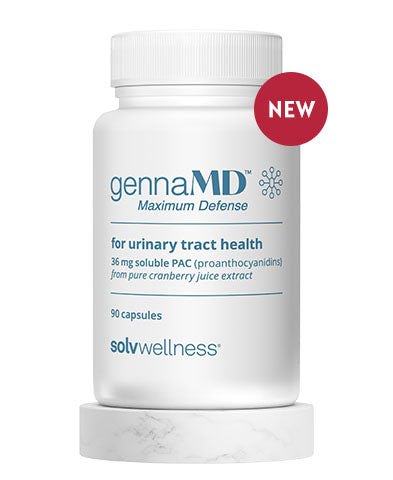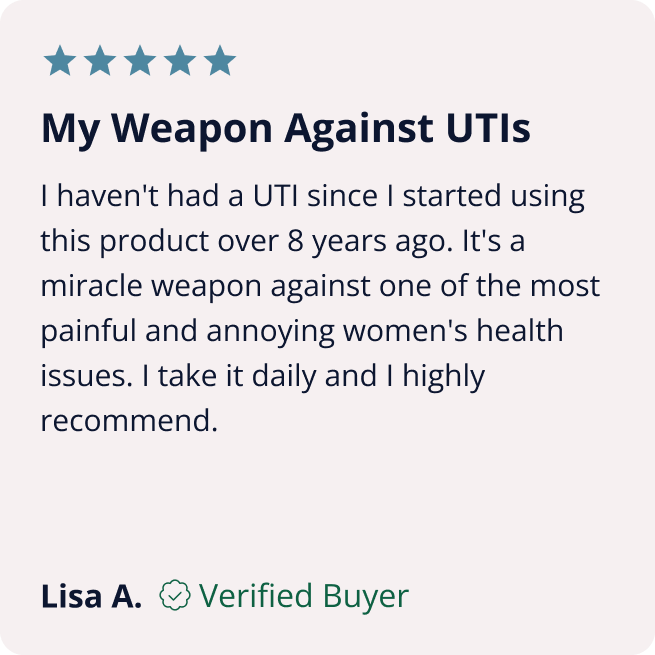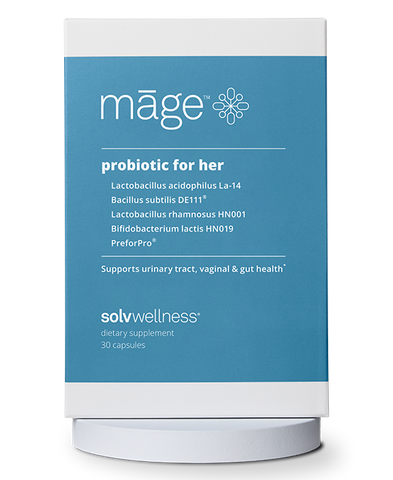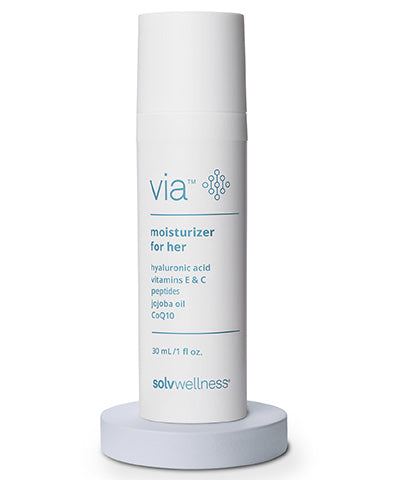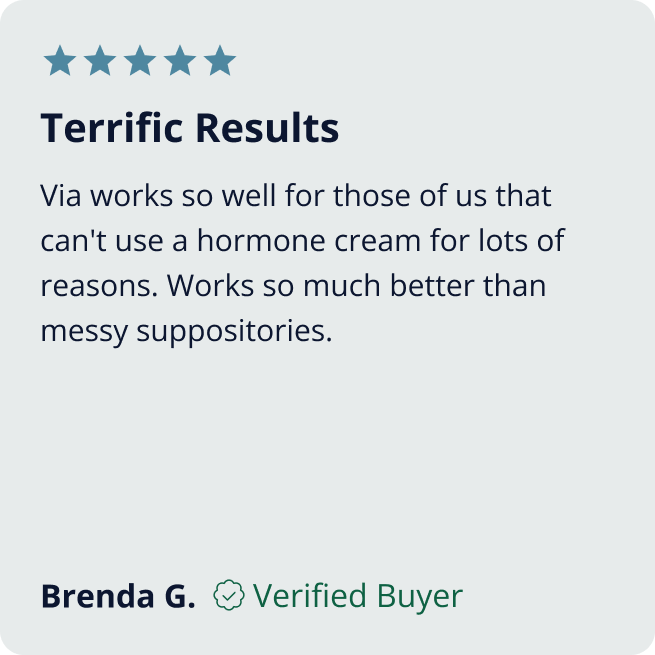You may not be sure how or when, but at some point, you probably heard probiotics are good for you, especially if you’re a woman. You may have a friend who swears by them to reduce bloating and digestive discomfort, a colleague who raves about how it helped with her morning regularity, or maybe you remember those digestive health yogurt commercials with Jamie Lee Curtis—and the Saturday Night Live spoof that followed.
Whatever it was that made you realize you probably should introduce some probiotics into your diet, if you went searching for one, and you’re like most of us, you were likely overwhelmed by the dizzying array of options and health benefit claims.

For all the women who've felt under-prepared to make the ultimate selection, this article is for you.
what’s the deal with probiotics for women?
Probiotics is the general term for the “good bacteria” that naturally live in your body. These healthy bacteria help to keep your microbiomes in balance. Changes in the gut, urinary tract and vaginal microbiomes due to factors like diet changes, daily stress, and even menopause, can offset your body’s natural balance, requiring outside help to get back on track. For example, many women who are prescribed antibiotics to treat an active infection such as a UTI are at risk of developing a yeast infection or bacterial vaginosis. An imbalance happens because the antibiotics are a blunt instrument, meaning they inevitably kill more of the bacteria in a microbiome than needed to control the infection. That’s where probiotic supplements come in—restocking the gut, urinary tract and vaginal microbiomes with beneficial bacteria helps restore your body’s natural balance.
how do you choose the right probiotic for your needs?
Whether you’re new to probiotics or you’re unsure if the supplement you’re currently taking is doing what you most need, we’re here to help break it down for you.
On the most basic level, these 3 factors matter the most when it comes to probiotics if you’re a woman:
1. Designed specifically for women
2. CFU survivability
3. A combo of prebiotics and probiotics
1. Make sure your probiotic is designed specifically for women’s unique needs.
The gut is just one part of a woman’s pelvic region, and an imbalanced gut can have a significant ripple effect across the entire female pelvic triangle, as any woman who’s ever had a yeast infection following a round of antibiotics will know all too well.
Men's and women’s bodies are different down to the cellular level, and yet, we often ingest supplements and medicines that don’t account for gender-specific differences. If we're talking about cold medicine, it’s less important. But for your pelvic health, the daily probiotic supplement you choose can make a difference.
2. When it comes to probiotic supplements, CFU survivability is everything.
Many brands list a surprisingly high number of CFUs (colony forming units) on the bottle, aka the number of live and active microorganisms that can be found in each serving. Our modern-world common sense skews us to think that having 80 billion CFUs is better than 10 billion, for instance. Chances are, they’re likely overstuffing the pills with just the probiotic strains considered to be most stable because the rest of their probiotics have a low survivability rate.

more ≠ better.
Because probiotics are living microorganisms, it’s expected that some will die before you have a chance to ingest them. Did you know it’s also expected that probiotic CFUs will diminish as they work their way through your GI tract? Wherever the CFU count started, if not enough survive the stomach acid in your GI tract and make it to the gut alive, their chances of making a difference anywhere in your body are slim.
So how do you win the seemingly unwinnable war on probiotics in your body?
That’s where prebiotics come in.
3. A prebiotic that fortifies the probiotics.
Choosing a probiotic supplement that also contains a prebiotic is your best chance. Prebiotics act like fertilizer for the probiotics, nourishing them to ensure they thrive and multiply so when they reach all their intended destinations, they are plentiful and strong enough to do their job.
Very few probiotic supplements on the market contain prebiotics. Instead, manufacturers rely only on increasing CFU counts to compensate for the inevitability that many of the fragile probiotics won’t make it to the gut, much less to the vagina or urinary tract. That’s why it’s important to make sure the supplement you’re taking includes a prebiotic.
bringing balance to the entire female pelvic triangle

By now, you know there’s more to probiotics than just CFU counts, and hopefully you’re feeling a bit more informed and better able to evaluate the best probiotic supplement options than before you set out to read this article. And you’re probably wondering if there is a probiotic supplement made just for women that targets the entire female pelvic triangle.
Of course there is! Would we tell you all this just to leave you high and dry without an option that hits all our requirements?
![]()
Meet Māge®
Made by Solv Wellness, this pre- and probiotic supplement was developed specifically for women.
What’s different about Māge?
- Māge contains the highest-quality probiotic strains at the right number of CFU counts needed to do their work.
- The blend of probiotics in Māge were specifically chosen because they’re clinically proven to help balance the entire female pelvic triangle for optimal gut health, vaginal health, and urinary health.
- The prebiotic in Māge is not like any other: PreforPro® acts like a heat-seeking missile that targets and ruptures some of the E. coli in your gut, the harmful bacteria most commonly responsible for urinary tract infections.* The remains of the E. coli feed the probiotics in the gut, so they can thrive, multiply and make a difference there as well as the rest of the pelvic triangle: the vagina and urinary tract.
For those who care about manufacturing standards, you'll be happy to know that Solv Wellness upholds world-class quality and safety standards on their probiotics, which means they go above and beyond what many probiotic manufacturers do. It’s important to make sure the manufacturer’s standards are high when it comes to quality and efficacy.
Here are the steps Solv Wellness takes to ensure the probiotics are manufactured with high quality standards:
- Each batch is inspected and reviewed for quality assurance.
- The manufacturing facility is registered as a FDA Food Facility Registration, is Good Manufacturing Practices certified and is regularly inspected and audited through NSF International.
- Product is stored and shipped in climate-controlled environments to help maintain quality and efficacy.
- Each capsule is packed in individual blister sleeves to ensure probiotic viability, unlike other women’s probiotics that come in a bottle where each capsule is exposed to air, moisture, and other elements every time you open it.
- The potency of ingredients is guaranteed through expiration date when stored as directed.





